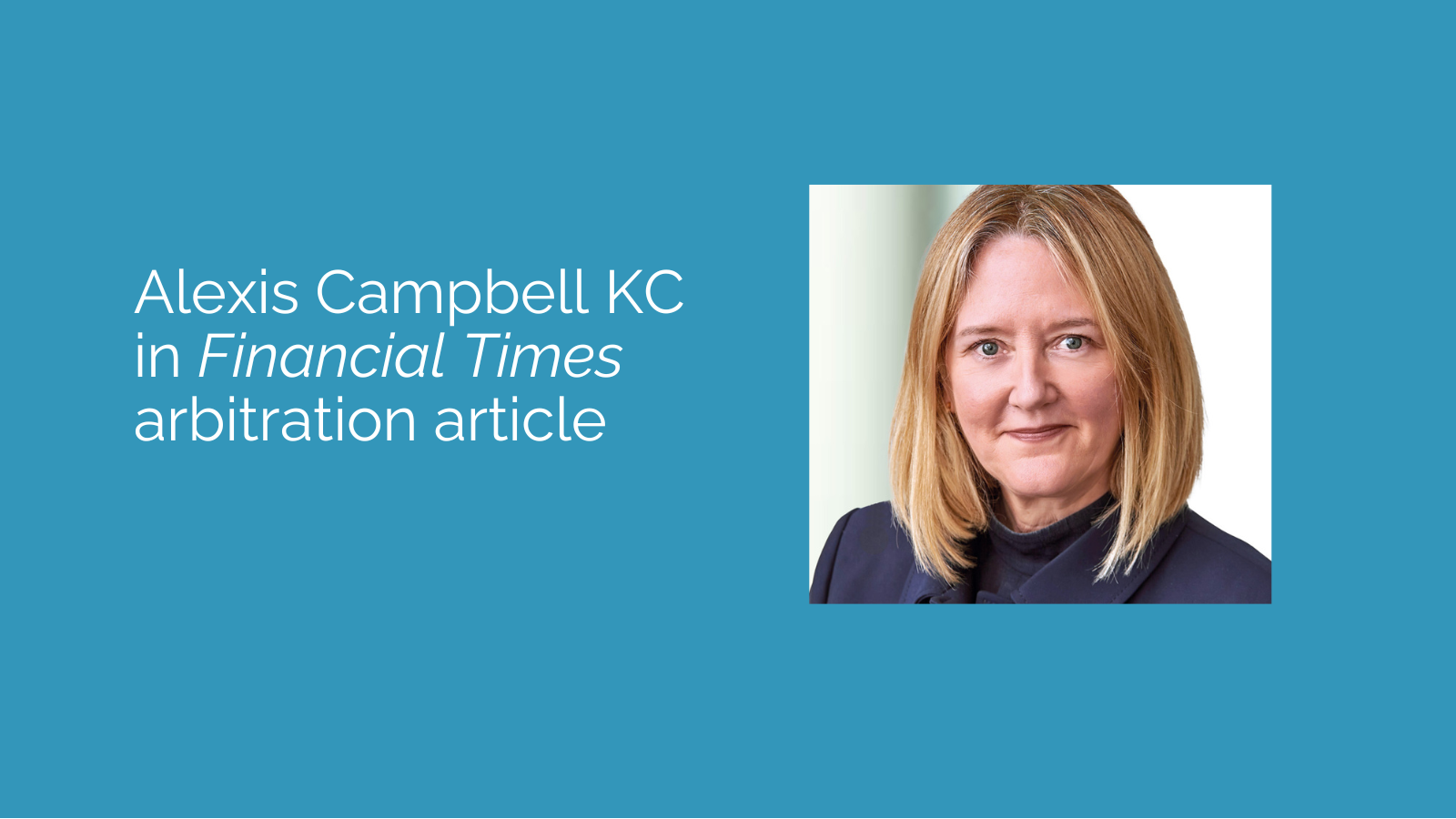Chambers News

29 Bedford Row in FT arbitration article
20 January 202529 Bedford Row’s joint head of chambers, Alexis Campbell KC, featured in an article in the Financial Times last weekend about separating couples using arbitration to agree the financial details of their divorce.
The article https://on.ft.com/40fvdmW (behind a paywall) outlines how arbitration is becoming more popular due to the speed of the process and the privacy that the process offers when compared to going through the Courts. The article quotes figures from the Institute of Family Law Arbitrators showing that there were 130 arbitrations regarding financial settlements for divorces in the year to mid-December 2024 against 89 for all of 2023.
This growth is reflected in 29 Bedford Row’s own practice with the set carrying out an increasing number of arbitrations, alongside other forms of non-court dispute resolution such as Mediation, Private Financial Dispute Resolution (in finance cases) and Early Neutral Evaluation (in children cases). Choosing one of these methods often results in saving money, time and most importantly reducing the stress levels that can often be associated with a family law dispute.
Arbitration
Arbitration, in particular, can be useful to divorcing parties – regardless of the size of the financial settlement at stake - because it is a system of non-court dispute resolution in which the parties choose the person who is to decide their dispute. The appointed arbitrator (unlike a mediator or early neutral evaluator) then has the power to make decisions which bind the parties to virtually the same extent as a judge in court. Arbitration became possible in disputes about money and property in 2012 and about children in 2016.
Arbitration has many advantages over the court process:
- The parties can choose their arbitrator from all those qualified (or ask for one to be chosen from a shortlist).
- The parties can agree the procedure to be used: for instance, whether to have a hearing or to have the decision made ‘on paper’ without a hearing.
- The parties can agree what is to be arbitrated. This may be the entire dispute, or it may just be one issue which is holding up negotiations.
- It can take place anywhere the parties agree.
- It is quick. Subject to the arbitrator’s availability, the timetable is in the hands of the parties.
- It is confidential.
If parties are already involved in court proceedings these can be put on hold whilst the arbitration takes place.
Although arbitration may seem more expensive than the court process because the parties have to pay the arbitrator, the saving of time and the ability to agree procedure will mean that in most cases there is an overall saving of costs.
Not all disputes are suitable for arbitration because an arbitrator does not have all the powers a judge has. This needs to be looked at on a case-by-case basis.
Full details of the finance and children arbitration processes can be found on the Institute of Family Law Arbitrators website here.
The Forum of Family Arbitrators has produced a quick guide to arbitration that you can view here.
Convenient facilities
29 Bedford Row has 11 rooms suitable for arbitration and other forms of non-court dispute resolution, all equipped with the latest AV facilities. The largest of these rooms is set up as a courtroom for private judging/arbitrations.
Contact us
Call 020 7404 1044 or email the Senior Clerk James Shortall for more information.
Back to News Listing
